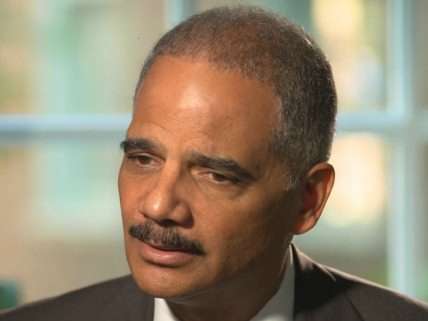The Improbability of Federal Charges Against Darren Wilson

If Darren Wilson had been indicted, he probably would have been acquitted, since crucial questions about his deadly encounter with Michael Brown—questions on which the police officer's self-defense claim hinges—remain unresolved. The physical evidence is ambiguous, and eyewitnesses contradict each other on important details such as who initiated the violence, whether Wilson fired at Brown as he fled, and whether Brown was trying to surrender or trying to attack Wilson. That does not necessarily mean the grand jury was right to reject criminal charges against Wilson, since the standard for an indictment, probable cause, is much lower than the standard for conviction, proof beyond a reasonable doubt. But if a state homicide charge would have been difficult to prove, convicting Wilson in federal court would be nearly impossible.
After the grand jury's decision was announced, Attorney General Eric Holder said the Justice Department is still investigating the shooting. But he noted that "federal civil rights law imposes a high legal bar in these types of cases." The relevant statute is Title 18, Section 242, which makes it a federal crime to "willfully" deprive someone of his constitutional rights "under color of any law." If death results, this crime can be punished by a life sentence or even by execution. But it requires a specific intent to violate someone's rights, and there is little evidence that Wilson had such an intent.
Assuming that Wilson's shooting of Brown was not legally justified, the most likely scenario is that he acted out of anger, unreasonable fear, or both in the heat of the moment during a brief encounter when there was no time to form the sort of intent required by the civil rights statute. (There would have been a similar problem in convicting Wilson of first-degree murder, which requires premeditation.) Last month The Washington Post reported that "Justice Department investigators have all but concluded they do not have a strong enough case to bring civil rights charges against Darren Wilson." The U.S. Commission on Civil Rights notes that "very few cases have resulted in investigation and prosecution" under 18 USC 242, partly because of "the evidentiary requirement where the accused officer's specific intent to violate a federally protected right must be proven beyond a reasonable doubt."


Show Comments (12)